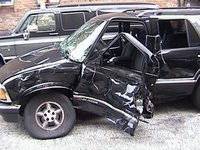
In a recent Nassau County medical malpractice case against North Shore University Hospital at Plainview, Dimitriou v. Mansouri, Nassau County Justice Bruce D. Alpert ruled that the hospital would not be released from the lawsuit of a plaintiff who sued to recover damages for personal injuries sustained as a result of malpractice of his private doctor who treated him at the hospital. The hospital moved to dismiss the complaint against it, claiming it could not be held responsible for the negligent acts or omissions of the plaintiff's treating private doctor. The rule is that a hospital could not be held liable for the malpractice of a private attending physician who was not its employee. However, there is an exception where the patient entered the hospital through the emergency room seeking treatment from the hospital and not from a particular physician of the patient's choosing. The Court denied the hospital's motion stating that it failed to submit enough evidence to demonstrate that the plaintiff went to the emergency room seeking treatment from a private doctor rather than from the hospital itself. www.foleygriffin.com





